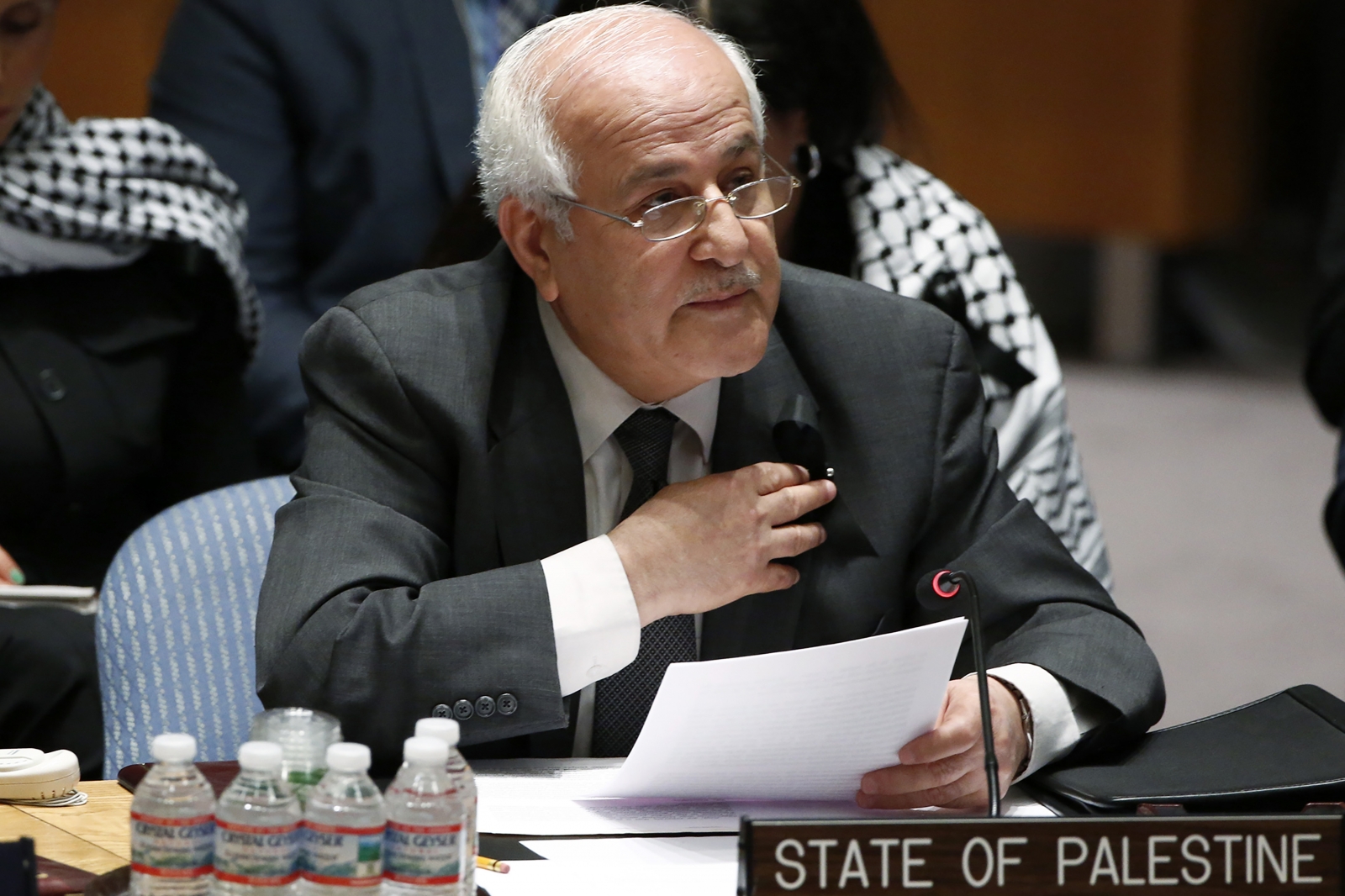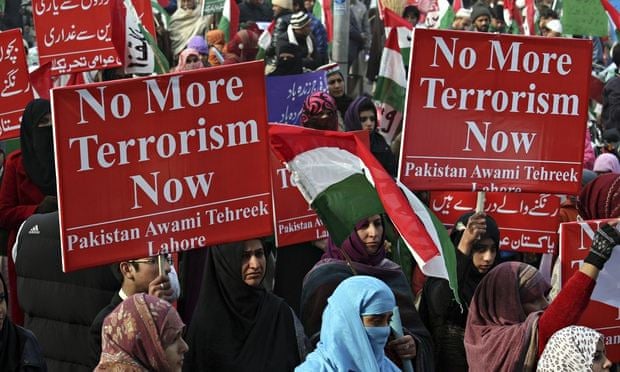By Kathryn Maureen Ryan
Impunity Watch, Managing Editor
RAMALLAH, Palestine – The United Nations Security Council has rejected a draft resolution on the Palestine issue which failed to receive the necessary nine votes. The resolution would have called for a peace deal with Israel within a year and an end of the Israeli occupation of the Palestinian territories by late 2017. The Security Council will convened at 5:00PM on Tuesday to discuss the Palestinian proposal calling for peace. Twenty-two Arab ambassadors to the United Nations met on Tuesday and decided to move forward and put the resolution to a vote before the Security Council. A United Nations spokesperson confirmed that the Security Council would convene today to discuss the Palestinian statehood bid. A senior Israeli diplomat said the likelihood of a vote was expected to take place either later tonight or Wednesday at noon. The Israeli diplomat said it expected the United States to veto the bid if it were to pass. Palestinian officials have warned that if the bid to win support for a United Nations resolution failed they are prepared to join the International Criminal Court to file suits against Israel.

The Palestinian resolution called for occupied East Jerusalem to be the capital of the new state of Palestine, an end to Israeli settlement building and settling the issue of Palestinian prisoner releases. Palestinian officials also said the draft resolution calls for negotiations to be based on pre-1967 territorial lines, meaning the borders that existed before Israel captured the West Bank, East Jerusalem and the Gaza Strip in 1967. “We’ve been deliberating this issue for almost three and a half months. It is not a lack of flexibility, because we took some of the French ideas in our revised text,” Riyad Mansour, Palestinian ambassador said.
“The Security Council has once again failed to uphold its charter duties to address this crises and to meaningfully contribute to a lasting solution in accordance with its own resolutions,” Mansour said when the resolution failed. “This year, our people under Israeli occupation endured the further theft and colonization of their land, the demolition of their homes, daily military raids, arrests and detention of thousands of civilians including children, rampant settler terrorism, constant affronts to their human dignity and repeated incursions at our holiest sites,” he added.
The United States, Israel’s closest ally in the international community, had reiterated its opposition to the draft resolution. The United States Ambassador to the United Nations, Samantha Power, said the resolution undermined efforts to “achieve two states for two people.” She said “It is deeply imbalanced and contains many elements that are not conducive to negotiations between the parties including unconstructive deadlines that take no account for Israelis legitimate security concerns.”
The resolution received eight “yes” votes, two “no” votes from the United States and Australia, and five abstentions, from the UK, Lithuania, Nigeria, South Korea and Rwanda. Senior Palestinian Authority officials said Tuesday evening that Jordan will request a vote on the Palestinian draft at the end of the Security Council meeting. The Palestinians believe there is majority support for the vote. The Palestinian Authority expects the resolution to receive “yes” votes from Russia, China, France, Argentina, Argentina, Jordan, Chad, South Africa, Chile, and Luxembourg. The United States and Australia are expected to oppose the vote. The U.K., Rwanda, Lithuania and Nigeria are considered to be on the fence on this issue, or may be likely to abstain.
Israeli Foreign Minister Avigdor Lieberman said that he believed France and Luxemburg will vote in support of the resolution, which will give the Palestinians the nine votes they need. “I’m sure that the countries that for some reason decided to support the Palestinian move will reach the conclusion that they made a grave mistake.” He said “I hope the Palestinians don’t get the nine votes in the end,” Lieberman said, “but expect that the Americans will” Lieberman said that the Palestinian bid was a political move initiated by Palestinian President Mahmoud Abbas to further his own internal Palestinian political agenda. “The move will not achieve a thing but destroy any chance of reaching an agreement,” he said. “Abbas is doing it as part of his struggle with the Hamas and Dahlan and the rest of his opponents and not for obtaining a Palestinian state. It is all for his political survival.” Palestinian Authority President Mahmoud Abbas is expected to speak about the results of the vote and outline future steps of the Palestinian Authority, during a rally at the Palestinian Authority headquarters commemorating the anniversary of Fatah Party’s founding.
In an attempt to stop the passage of the resolution Israeli Prime Minister Benjamin Netanyahu called a number of the leaders of Security Council member states and asked them not to support the resolution. Netanyahu referred to the Palestinian resolution during a meeting on Monday with the Indiana Governor Mike Pence during the governor’s visit to Israel. “We expect the entire international community, at least its responsible members, to strongly oppose this dictate to the UN and the Security Council. What we need is direct negotiations and not dictated terms,” Netanyahu said.
For more information please see:
Al Jazeera – UNSC Rejects Resolution on Palestinian State – 30 December 2014
Haaretz – UN Security Council Set To Vote On Palestinian Statehood Bid – 30 December 2014
International Business Times – UN Security Council to Vote on Palestine Statehood Resolution Tonight – 30 December 2014
U.S. News and World Report – U.N. Security Council to Vote on Palestinian Resolution – 30 December 2014



